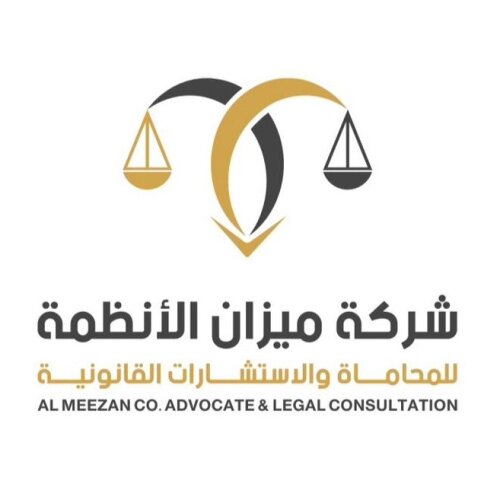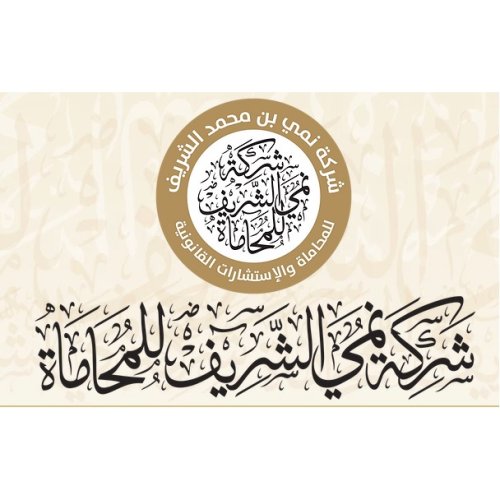Best Structured Finance Lawyers in Makkah
Share your needs with us, get contacted by law firms.
Free. Takes 2 min.
List of the best lawyers in Makkah, Saudi Arabia
About Structured Finance Law in Makkah, Saudi Arabia
Structured finance refers to complex financial instruments or transactions designed to manage risk or raise capital. These may include asset-backed securities, securitization, syndicated loans, and other financial arrangements not covered by conventional loans. In Makkah, Saudi Arabia, structured finance is influenced by both local regulatory frameworks and Sharia principles, making it unique compared to practices in other jurisdictions. Given the prominence of Islamic banking and finance, all structured finance transactions must comply with Sharia law, which prohibits interest and speculative transactions.
Why You May Need a Lawyer
Individuals and businesses might need legal representation in matters involving structured finance for several reasons. Common situations include:
- Structuring or negotiating complex financial deals in accordance with Saudi law and Islamic finance principles
- Ensuring compliance with the Saudi Arabian Monetary Authority (SAMA) regulations
- Drafting or reviewing asset-backed securities or syndicated loan agreements
- Mitigating the legal risks associated with securitization or risk-transfer transactions
- Advice on cross-border structured finance transactions involving entities in Makkah
- Resolving disputes between parties to structured finance deals
- Navigating tax implications and reporting obligations under Saudi law
Local Laws Overview
Structured finance in Makkah is governed by a set of regulations which include both Saudi national laws and Islamic finance rules. Key legal aspects include:
- Sharia Compliance - Transactions must not involve interest, excessive uncertainty, or prohibited activities, and must be based on real assets
- Saudi Arabian Monetary Authority (SAMA) Regulations - SAMA oversees and regulates financial institutions and transactions, including structured finance activities
- Capital Markets Authority (CMA) - Regulatory body for securities, including asset-backed securities, and governs public offerings and disclosures
- Company Law - Relevant for businesses engaging in structured finance, covering registration, obligations, and liabilities
- Contract Law - All agreements must adhere to Saudi contract law and applicable doctrines under Sharia
- Bankruptcy and Insolvency Laws - Govern the risk and protection mechanisms in cases of financial distress within structured arrangements
Frequently Asked Questions
What is structured finance?
Structured finance refers to complex financial transactions designed to manage risk or raise capital, going beyond traditional bank loans, often involving multiple parties and customized legal structures.
Is interest allowed in structured finance products in Makkah?
No, interest, known as riba, is strictly prohibited under Sharia law, which forms the basis for all financial transactions in Saudi Arabia including structured finance.
What types of assets can be securitized in Saudi Arabia?
Assets that generate cash flows and are permissible under Sharia can be securitized, including real estate, receivables, and infrastructure projects.
What regulatory bodies oversee structured finance in Makkah?
SAMA regulates most financial activities, while CMA oversees the securities and capital market aspects. Islamic scholars also review deals for Sharia compliance.
Are there special requirements for documentation?
Yes, documentation must adhere to both Saudi contract law and specific Sharia principles. Legal and Sharia compliance review is essential.
Can foreign companies participate in structured finance transactions in Makkah?
Yes, but foreign companies must comply with local laws, obtain necessary licenses, and often partner with local entities depending on the transaction type.
How is risk allocated in structured finance deals?
Risk is distributed among various parties according to the transaction structure and must comply with Sharia restrictions against excessive uncertainty.
What happens if a party defaults in a structured finance arrangement?
Remedies are governed by Saudi law and the specific terms of the contract, with dispute resolution often involving local courts or Sharia boards.
Is legal representation necessary for structured finance transactions?
Legal guidance is highly recommended to ensure compliance with complex local and Sharia regulations, minimize risks, and properly structure deals.
How can disputes in structured finance be resolved?
Disputes can be resolved through negotiation, mediation, or litigation in Saudi courts, with guidance from legal and Sharia experts.
Additional Resources
Below are some resources and organizations that offer further information or assistance for those involved in structured finance in Makkah:
- Saudi Arabian Monetary Authority (SAMA) - Regulatory guidance and licensing
- Capital Markets Authority (CMA) - Oversight of securities and disclosures
- Ministry of Commerce - Business registration and company laws
- Local law firms with expertise in Islamic finance and structured products
- Islamic finance advisory boards for Sharia compliance
- Makkah Chamber of Commerce - Local business support
Next Steps
If you require legal assistance in structured finance in Makkah, Saudi Arabia, consider taking the following steps:
- Identify your needs - Determine the type of transaction or assistance you require
- Seek recommendations for reputable law firms or legal experts specializing in structured finance and Islamic finance
- Prepare relevant documentation about your case or transaction for an initial consultation
- Arrange a meeting with a qualified lawyer to assess your situation and discuss compliance needs
- Verify that your legal representation is familiar with local regulations and Sharia requirements
- Stay informed about ongoing regulatory changes that may affect your matter
Taking prompt action with professional legal advice can help ensure your structured finance activities in Makkah proceed smoothly and lawfully.
Lawzana helps you find the best lawyers and law firms in Makkah through a curated and pre-screened list of qualified legal professionals. Our platform offers rankings and detailed profiles of attorneys and law firms, allowing you to compare based on practice areas, including Structured Finance, experience, and client feedback.
Each profile includes a description of the firm's areas of practice, client reviews, team members and partners, year of establishment, spoken languages, office locations, contact information, social media presence, and any published articles or resources. Most firms on our platform speak English and are experienced in both local and international legal matters.
Get a quote from top-rated law firms in Makkah, Saudi Arabia — quickly, securely, and without unnecessary hassle.
Disclaimer:
The information provided on this page is for general informational purposes only and does not constitute legal advice. While we strive to ensure the accuracy and relevance of the content, legal information may change over time, and interpretations of the law can vary. You should always consult with a qualified legal professional for advice specific to your situation.
We disclaim all liability for actions taken or not taken based on the content of this page. If you believe any information is incorrect or outdated, please contact us, and we will review and update it where appropriate.












